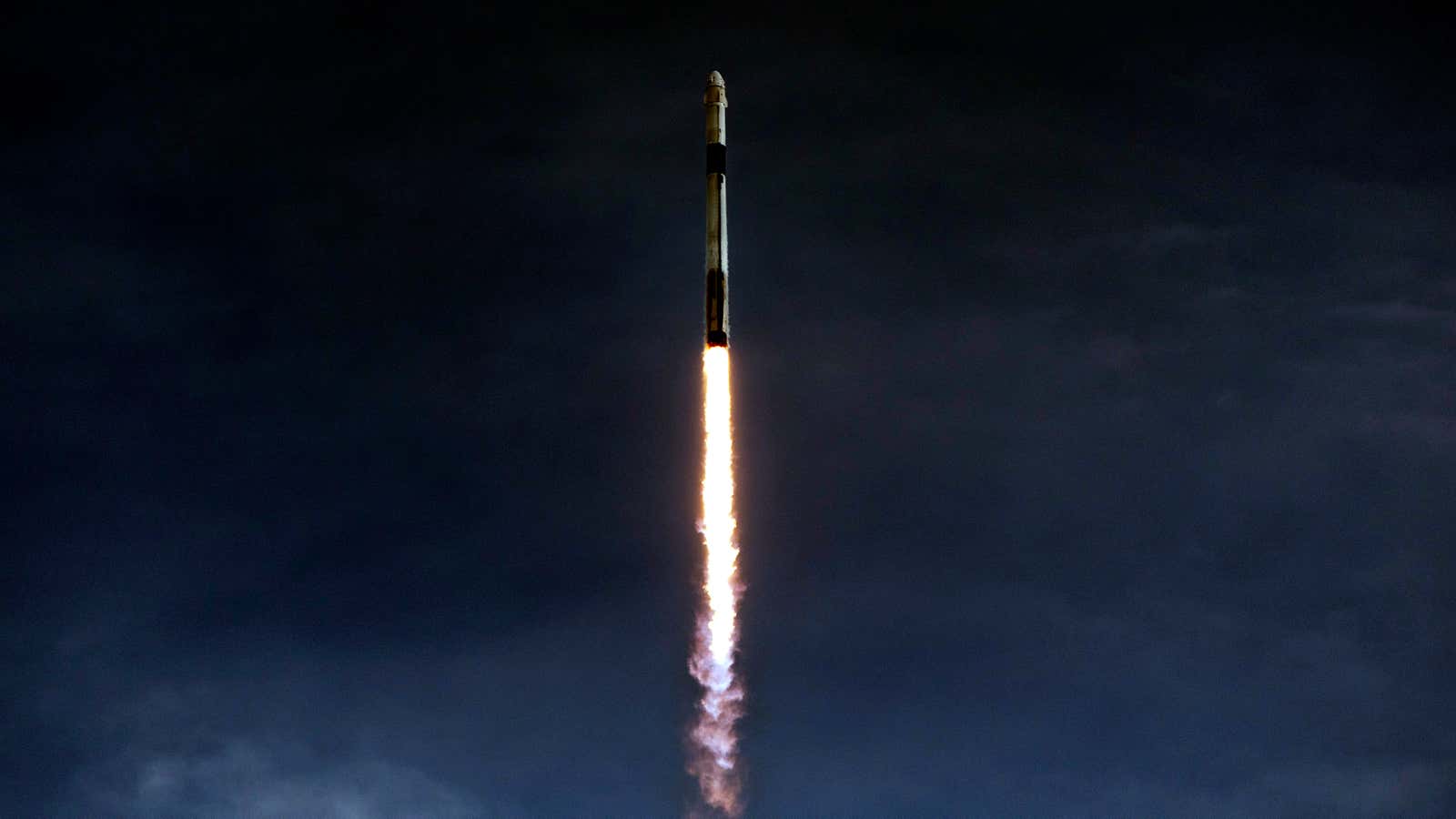An LA-based entrepreneur with a pronounced eccentric streak and tabloid-friendly lifestyle uses a blockbuster film to popularize his favorite technology.
It’s Elon Musk today, but it was Howard Hughes in the 20th century.
News broke today that Tom Cruise is plotting a new film to be made in low-Earth orbit with NASA, leveraging the capability of SpaceX’s Crew Dragon spacecraft to reach the International Space Station (ISS). It makes sense: Cruise, obsessed with performing his own stunts, needs to somehow top learning to fly a helicopter in 2018’s Mission Impossible: Fallout. The only place to go is up.
NASA administrator Jim Bridenstine said the film will “inspire a new generation of engineers and scientists.”
The Dragon will make its astronaut-carrying debut on May 27 during a final test flight before going into regular service later this year, NASA hopes. The agency has already said that the vehicles will be available for paying customers who want to visit the ISS, whether for tourism, research or to make a movie where Tom Cruise dispatches a bad guy in microgravity.
SpaceX didn’t respond to a request for comment on the project. However, any commercial space project originating in the US will have to use SpaceX’s vehicle to get to ISS, at least until Boeing’s Starliner completes its development, perhaps in 2021.
Before being known for wearing tissue boxes for shoes, Howard Hughes was famous as a filmmaker and aviation pioneer. He produced movies and designed aircraft, while breaking flight records as a pilot. Most notable in his film career was 1930’s “Hell’s Angels,” a movie about World War I fighter pilots that became one of the major successes of early “sound” films, and won an Oscar for cinematography thanks to the pioneering stunt scenes, supervised by Hughes himself.
Like Hughes, Musk made his first foray as a businessman into the new media of the age—the early web, creating one of the first services to bring newspapers and local information online. And like Hughes, he would go on to develop major industrial businesses, cranking out rockets and electric cars instead of aircraft and mysterious submarines.
Thus far, Musk has commanded public attention through his controversial Twitter feed and the often live-streamed media events put on by his company. His legions of fans hang on his every word. But the billionaire hasn’t achieved his larger aims of popularizing space technology or making a “multi-planetary society” a key goal for global problem-solvers. SpaceX’s most popular YouTube videos have millions of views; a Tom Cruise blockbuster could be seen by tens of millions of people.
There are still plenty of details to emerge about this project, particularly around how much the space agency will subsidize it. But a major Hollywood production connected to the ISS would be a step forward—a giant leap, if you will—toward the future sought by NASA, where the US space agency is just one of many customers for the vehicles and habitats plying the space lanes closest to Earth.
Meanwhile, there is one trait that Musk, who has courted controversy in recent weeks by criticizing public health officials and scientists who are fighting the coronavirus pandemic, doesn’t share with Hughes: A fear of disease.
